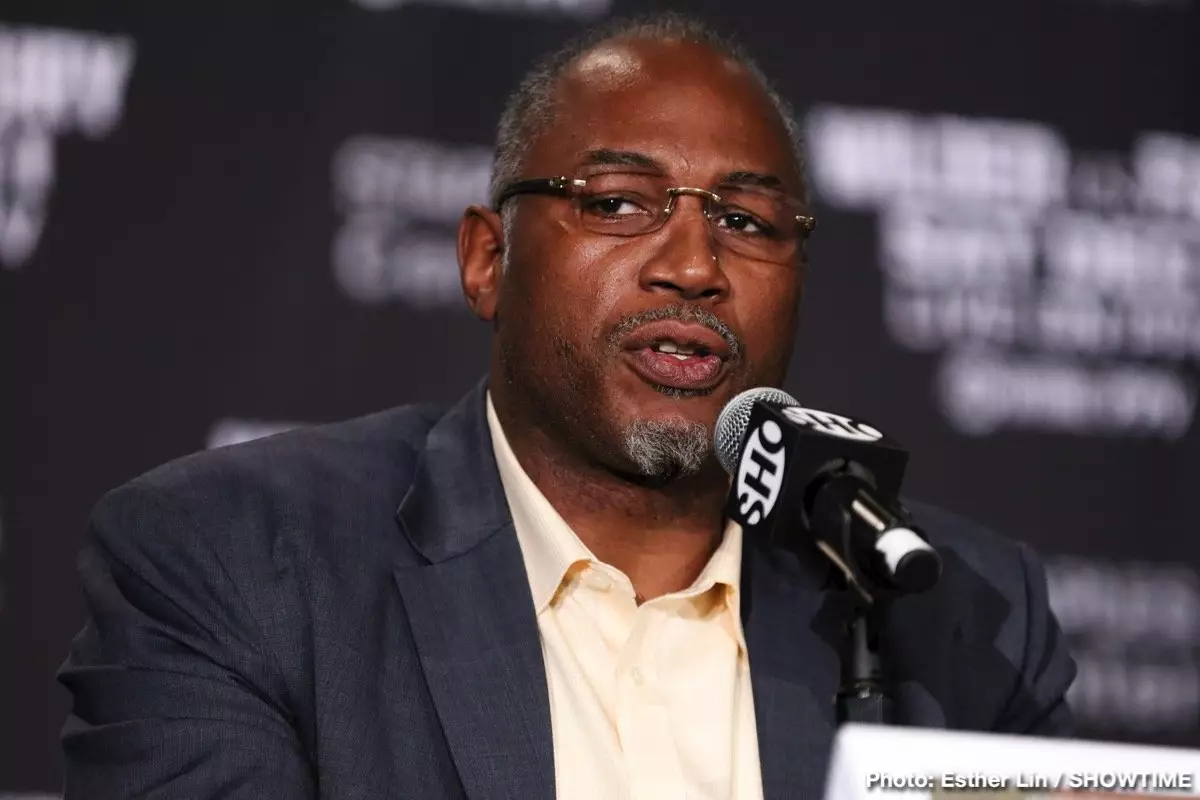Lennox Lewis, a towering figure in the world of heavyweight boxing, has carved out a legacy marked by breathtaking knockouts and monumental victories against renowned opponents. With a career that spanned over a decade and an impressive list of challengers such as Razor Ruddock, Frank Bruno, and Mike Tyson, Lewis had his fair share of memorable moments in the ring. However, what truly distinguishes Lewis from many other champions is not merely the victories themselves but how he leveraged adversity for personal growth and ultimate triumph.
In a recent episode of the Ring Magazine podcast, Lewis was asked to reflect on his career, specifically identifying his all-time favorite punches. While he has delivered countless iconic blows, it is two particular fights that resonate most profoundly with him—his rematches against Oliver McCall and Hasim Rahman. These victories were not just about reclaiming titles but more about redemption, personal growth, and overcoming the weight of past failures.
Lewis’ defeat by Hasim Rahman in April 2001 was nothing short of shocking. He entered the ring that night with a sense of invincibility, only to find himself knocked out in the fifth round. This loss not only cost him the heavyweight title but also served as a personal and professional low. In an industry defined by toughness and resilience, experiencing such a fall from grace can damage an athlete’s reputation and mental fortitude.
Upon reflecting on the aftermath of that loss, Lewis noted the peculiar circumstance that followed—his anticipated meeting with the revered Nelson Mandela. Having prepared himself mentally for a victory that never materialized, Lewis faced the disappointment head-on. Instead of wallowing in self-pity, he chose to embrace the opportunity that lay in confronting one of history’s greatest figures.
Visiting Mandela’s home offered him a unique perspective. The encouragement he received during this interaction became pivotal in shaping Lewis’ mindset for the rematch with Rahman. Mandela’s words—“you’ll get him next time”—were more than just a motivational phrase; they were a lifeline thrown at a moment when defeat threatened to drown Lewis in doubt. The juxtaposition of his physical prowess with the emotional uplift gained from Mandela’s wisdom provided a much-needed boost.
Fast forward to their rematch later in the year, where Lewis emerged victorious, knocking out Rahman in the fourth round. This victory symbolized more than just reclaiming the championship belt; it represented the triumph of resilience over adversity. The moniker “Has-been Rahman” aptly reflects the symbolic nature of that fight, where Lewis not only avenged his earlier defeat but transformed it into a stepping stone for his personal narrative of tenacity and resilience.
In a broader context, this story encapsulates an essential lesson for anyone facing setbacks—whether in sports, business, or personal challenges. Lewis’ journey serves as an exemplar of how embracing defeat, seeking inspiration, and striving for redemption can lead to an even greater outcome. The importance of having mentors or figures who guide us through rough waters cannot be overstated, as they often impart wisdom that serves as the catalyst for growth.
Despite his extraordinary achievements, Lewis remains humbled by the experiences of his career. His acknowledgment of Mandela’s influence showcases not just an athlete’s journey but also highlights the profound nature of human connections and mentorship. The transient nature of fame often highlights the importance of character and integrity over mere accolades.
Lennox Lewis’ journey exemplifies the trials and triumphs that define not just a career in sports, but the very essence of what it means to be human. Through lessons learned from defeat and the uplifting power of encouragement, Lewis showcased a narrative that transcends boxing, encouraging everyone to find their strength in moments of despair and to emerge victorious. When we reflect on lives lived fully—and careers etched in history—it’s these intersections of resilience, mentorship, and redemption that resonate most deeply.

